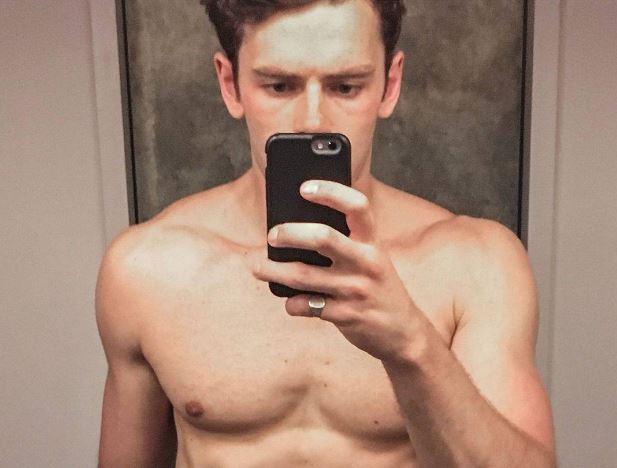The personal trainer who only eats two meals a day reveals why he has never touched a protein shake in his life

Your support helps us to tell the story
From reproductive rights to climate change to Big Tech, The Independent is on the ground when the story is developing. Whether it's investigating the financials of Elon Musk's pro-Trump PAC or producing our latest documentary, 'The A Word', which shines a light on the American women fighting for reproductive rights, we know how important it is to parse out the facts from the messaging.
At such a critical moment in US history, we need reporters on the ground. Your donation allows us to keep sending journalists to speak to both sides of the story.
The Independent is trusted by Americans across the entire political spectrum. And unlike many other quality news outlets, we choose not to lock Americans out of our reporting and analysis with paywalls. We believe quality journalism should be available to everyone, paid for by those who can afford it.
Your support makes all the difference.In a fitness mad world, protein shakes are for many the must-have accessory to a workout.
We're promised they'll repair destroyed muscles and, crucially, prevent the dreaded two-day burn.
And it's not a wonder gyms are promoting their fancy new shake bars, at more than £7 ($9) a pop. They're a nice little add on to your already pricey exercise class.
But not everyone's sold on them.
Before becoming a personal trainer, Max Lowery, 27, who swears by the 2 Meal Day intermittent fasting weight loss plan, was a professional sprinter for four years.
He told Business Insider why he has never taken a protein shake in his life — and doesn't intend to. Lowery believes protein shakes are unnecessary for about 90% of people.
"The only people who might benefit from them are vegans who aren’t being so careful with their diets — so it's an easy way to get some protein — or elite athletes who are training twice a day six days a week," he said.
"The average untrained person needs as little as 60-75g of protein and the average trained person who exercises three times a week needs 1.2g-2g per kilo of body weight. You can easily get enough protein from eating real food.
"In fact, too much protein can actually be broken down into sugars that create an insulin response which can facilitate fat storage. This is called gluconeogenesis."
And he's also unconvinced by what's going into these blended concoctions.
"Lots of shakes are packed with artificial sweeteners like corn syrup solids, sucralose, and acesulfame potassium —companies use these because they are addictive and send a signal to the brain to keep drinking or eating without an off switch — even if they, themselves, don't contain any calories."
He went on: "A lot of whey protein comes from very poor sources as well, most commercial whey powders are high-heat-treated, acid-flushed, and stripped of vital nutrients, creating an imbalanced, acidic 'whey isolat,' that's frequently contaminated with synthetic additives, chemical detergents, and heavy metals.
"It's no wonder they have to use all these sweeteners to cover the taste."
If you're absolutely hell-bent on shakes, then Lowery recommends vegan proteins, such as Form Nutrition. "They're generally healthier and take pride in the quality of their ingredients," he said.
But there are studies out there that support the consumption of protein shakes after a hardcore workout.
Lowery said: "Like with many food products the companies funding studies have an interest in positive results. There have also been a few recent unbiased studies that suggest your protein consumption over the course of the day is what's important, the emphasis that has been put on the hour after exercise is false."
Protein shakes are part of the hard sell in fitness
Lowery has another issue with protein shakes: The way they are marketed.
"Sports drink manufacturers have been incredibly successful in convincing us that we need to consume copious amounts of their product in order to look and feel good. It's a multi-million-pound industry with clever marketing and celebrity sports gurus promoting it."
And the rise of the Instagram fitness stars has only intensified things, he added.
"Influencers are being paid thousands to promote their products. They prey on people’s emotions. Unfortunately, people look at these influencers and believe that they look like that because they take protein shakes.
"This is untrue. They look like that because they train hard and eat well. There is no quick fix to getting fit and healthy, don’t waste your money consuming dust. Eat real food."
Read more:
• Barnier on Brexit talks: no 'decisive progress on any of the principle subjects'
• Explosions at Houston chemical plant after it was flooded by Harvey
• Theresa May insists she will fight the next general election
Read the original article on Business Insider UK. © 2016. Follow Business Insider UK on Twitter.
Join our commenting forum
Join thought-provoking conversations, follow other Independent readers and see their replies
Comments